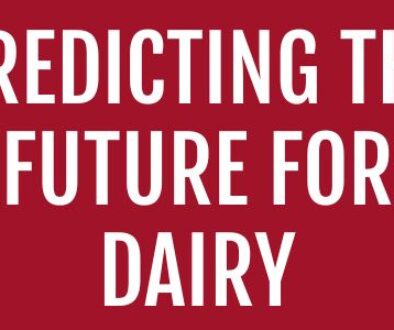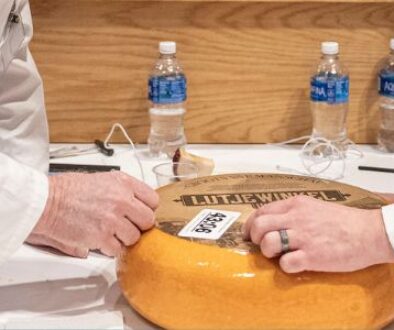Digitalization In Dairy Through AI
With constant population growth, consumer expectations toward quality of food and its impact on nutrition and public health shift significantly.
The food industry is now being pushed to produce more food with less technical and economical input. Use of modern technologies in designing innovative processes and products with less environmental impact is the need of the hour. Artificial Intelligence (AI) is emerging as a powerful solution to these needs by maximizing efficiency all along the entire food supply chain.
The use of AI became a natural choice by the food industry to make processes efficient, robust and to ensure uninterrupted supply of raw material, ingredients, and processing tools. From increasing farm yields with precision agriculture to addressing labor shortages with automation and robotics, AI is changing the production, processing, and distribution of food and ingredients across the globe. Besides, AI-powered logistics and demand forecasting systems are streamlining distribution, reducing waste, and providing customers with fresh, high-quality products at the right time. By leveraging AI technologies, the food industry can enhance in satisfying growing demand while addressing labor and logistics constraints.
Machine Learning Improves Performance
AI is a technology gadget that enables computers and machines to simulate human intelligence including creativity, learning, adaptation, comprehension, decision-making, problem-solving, and autonomy. Some of the key characteristics of AI are as follows: i) Machine Learning (ML), ii) Natural Language Processing (NLP), iii) Computer Vision, iv) Robotics, and iv) Expert System.
In ML, machines have the capability to learn and improve their performance over time based on data given without being programmatically taught; examples include predictive modelling. Whereas the field of NLP deals with the ability of machines to accept and respond to human language; sentiment analysis, chatbots, and language translation are great examples of it.
AI is able to process and make decisions based on visual data through Computer Vision technique, where it is widely being used in medical imaging, facial recognition, and autonomous vehicles. In Robotics, AI is used to control robots so that they can operate independently. Whereas in Expert System, AI technology mimics the decision-making ability of an expert or trained human; they are used in fields like financial or supply chain forecasting, and medical diagnosis. AI is revolutionizing different sectors through improved product performance, automation capabilities, increased efficiency, and creating new calibers to make them impactful and viable.
The use of AI as a formulation tool has become popular in designing the recipe in dairy product manufacturing. AI algorithms can process huge amounts of data in order to optimize the product formulation for desired flavor, texture, and nutritional profile, catering personalized experience to consumers.
AI can tailor dairy products to suit individual dietary requirements and tastes, such as high protein, low sugar, paleo or lactose-free products. AI is able to identify, predict, and formulate new flavors based on consumer purchase patterns and trends, which can bring agility to dairy manufacturers in terms of new product innovation and marketing concepts. AI programming can help to utilize blogs, online reviews, social media, and consumers’ feedback to predict future trends and preferences, unlock innovative ideas and offerings for trending markets. This provides new avenues for dairy companies to stay ahead of the curve and produce products that resonate with consumer needs.
Engineering Sustainable Products
AI can help engineer sustainable products by making selection of low-carbon footprint ingredients for recipe development, to pursue the sustainability efforts. This is essential to support environmental ethics and consumer interest towards eco-friendly products. AI can also be used to maximize plant operation efficiency by automated scheduling of various production steps.
In a dairy processing plant, AI-powered solutions such as chemometric software can be used to make real time decisions on the production floor based upon chemical and engineering properties of the intermediate products. This may include ingredient selections, optimizing processing and storage conditions, creating new structures, and predicting processing behavior and shelf life of the product. Use of AI minimizes the necessity for human interventions and enhances overall efficiency by reducing waste, increasing throughput, improving product quality and improving overall profitability.
One such application could be predicting functional quality of dairy products using machine learning algorithms. Through ML, AI can analyze and process past production datasets to provide valuable insights and recommendations for further improvement.
In summary, the use of AI in the dairy industry is not just a digital innovation but it’s a strategic choice to cater to growing needs in the volatile global market. While AI has already begun to change applications like intelligent dairy farm practices, automation, and logistics, its full potential is yet to be tapped. AI offers intelligent automation, advanced analytics, and predictive modeling that can improve even more in terms of productivity, waste elimination, and offering more personalized, sustainable products experience to consumers. As AI continues to evolve, pioneering dairy sector that seeks out these technologies will be well-positioned to drive the next wave of efficiency, robustness, and customer satisfaction.
Keep Up To Date On Cheese Industry News
Find all of HART Design & Manufacturing’s current industry news here.
Source: Dairy Foods




